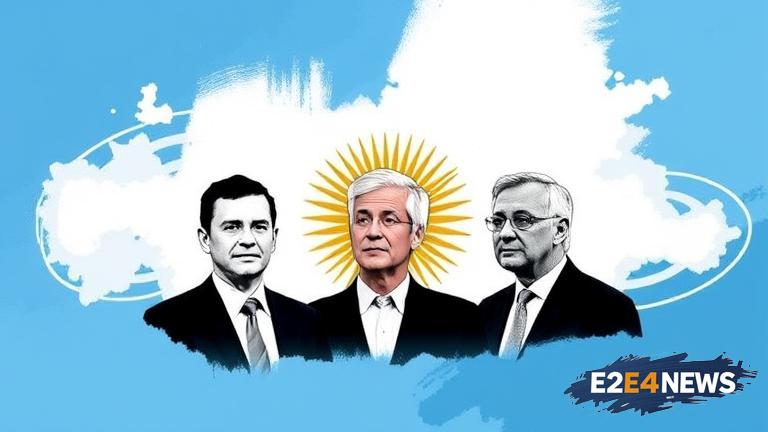The formation of this electoral front marks a significant development in Argentine politics, as the five governors, hailing from different provinces, have put aside their differences to challenge the dominant parties. This move is seen as a response to the growing discontent among citizens with the current state of politics. The governors, who have been critical of the government’s handling of the economy and other issues, aim to provide a viable alternative to the traditional parties. The electoral front, which has yet to be named, will likely focus on issues such as inflation, poverty, and corruption, which have been plaguing the country. The governors’ decision to unite has been welcomed by many, who see it as a chance for real change. However, others have expressed skepticism, citing the challenges that the new front will face in competing with the established parties. The October midterms are expected to be highly contested, with many seats in the legislature up for grabs. The electoral front’s chances of success will depend on their ability to mobilize support and present a coherent platform. The governors have announced that they will be holding a series of rallies and meetings across the country to drum up support. They have also promised to release a detailed policy platform in the coming weeks. The move has been seen as a blow to the incumbent government, which has been struggling to maintain popularity. The government has responded by criticizing the governors’ decision, saying that it will only lead to further fragmentation and instability. Despite this, the electoral front remains optimistic, citing the growing discontent among citizens as a key factor in their favor. The Argentine people are eager for change, and the new front is seen as a potential catalyst for this. The country’s economy has been struggling, with high inflation and poverty rates, and many are looking for a new direction. The electoral front has promised to tackle these issues head-on, with a focus on creating jobs and stimulating economic growth. The governors have also vowed to address the issue of corruption, which has been a major concern for many citizens. The formation of the electoral front has also sparked debate about the role of regional leaders in Argentine politics. Some have argued that the governors’ move is a sign of the growing importance of regional leaders, who are often seen as more in touch with the needs of their constituents. Others have cautioned that the front’s success will depend on their ability to balance regional interests with national concerns. As the October midterms approach, all eyes will be on the electoral front, which has the potential to shake up the country’s political landscape. The front’s success will depend on their ability to mobilize support, present a coherent platform, and address the key issues facing the country. With the country’s future hanging in the balance, the electoral front’s campaign is sure to be closely watched. The Argentine people are eager for change, and the new front is seen as a potential catalyst for this. The country’s political landscape is shifting, and the formation of the electoral front is just the beginning.
